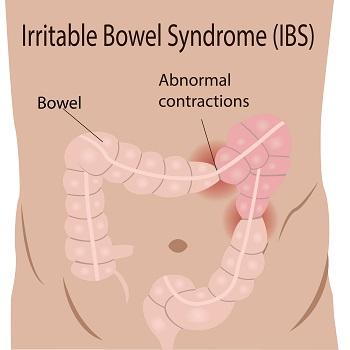Is it constipation? Is it diarrhea? Frankly, when a patient complains to his or her physician about GI problems, the doctor has to wonder, "Is it Irritable Bowel Syndrome?" If you alternate between infrequent and too frequent bowel movements, you may need evaluation by a gastroenterologist. An expert in all things from  your esophagus through your stomach and intestines, a GI doctor can uncover the reasons behind bowel issues, including IBS.
your esophagus through your stomach and intestines, a GI doctor can uncover the reasons behind bowel issues, including IBS.
About IBS and its symptoms
Unfortunately, no one knows the real origin of Irritable Bowel Syndrome. However, it definitely is a cluster of symptoms which millions of people in the US--more women than men--suffer, before the age of 50. The International Foundation for Gastrointestinal Disorders reports that stress appears to increase symptoms; however, anxiety and a high-pressure job or life circumstance do not actually cause the condition.
Besides constipation and/or diarrhea, individuals with IBS have:
- Bouts of gas
- Bloating
- Nausea
- Pain
- Cramps
- Mucus in the stool
- Fatigue
- Intolerance to a variety of foods, including those containing gluten and lactose (dairy)
What you can do
Your primary care physician may refer you to a GI doctor for additional evaluation. This specialist will listen to your symptoms; so be sure to tell him or her what they are, when and how often they occur, how long they last and what, if anything, helps.
The doctor may order blood work, including a complete blood count to check for anemia, an indicator of bleeding in the GI tract. Also, he or she may wish to look into your intestine via colonoscopy. This common examination introduces a lighted, flexible tube through the entire length of the large intestine. It allows the doctor to visualize and take photos of the lining of the bowel and to biopsy areas as needed.
Treatments for IBS
If you are diagnosed with Irritable Bowel Syndrome, you can manage your symptoms. No, IBS cannot be cured, but rest assured that many patients live well with this GI condition. Many gastroenterologists ask individuals to eliminate suspect foods such as:
- Alcohol
- Dairy products
- Chocolate
- Caffeinated drinks
- High fat or fried foods
On the positive side, you may gradually increase your intake of fibrous dietary choices such as:
- Beans
- Legumes
- Oats
- Bran
- Yams
- Whole grains
- Barley
The doctor may recommend easy-to-take fiber supplements such as Fibercon or Metamucil which regulate the water in the bowel and normalize stools. Probiotics--natural supplements containing beneficial bacteria and yeast--are a common part of an IBS regimen.
Feeling better
If you suspect you have Irritable Bowel Syndrome, or are just not sure what's going on with your digestive health, consult a board-certified gastroenterologist. This highly-skilled doctor will get to the source of your issues, answer your questions and help you function at your best.
 your esophagus through your stomach and intestines, a GI doctor can uncover the reasons behind bowel issues, including IBS.
your esophagus through your stomach and intestines, a GI doctor can uncover the reasons behind bowel issues, including IBS.